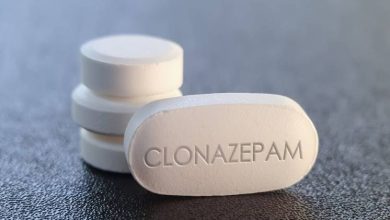What’s the difference between Basic Sciences and Clinical Medicine?

Basic science and clinical medicine are two major components of the Doctor of Medicine MD program. These terms are often erroneously interchanged. However, apart from both being components of the MD program, there are many differences. If you aspire to become a doctor, understanding the difference between the two can help you broaden your understanding of MD programs.
Basic medicine studies the fundamental principles of medical sciences, especially the human body, its diseases, and associated therapies. Clinical medicine focuses on the diagnosis and treatment of diseases and treatment.
If you are an aspiring medical student or about to enter medical school, it is imperative for you to understand the differences between the two.
What is Basic Medicine?
The fundamental principles of medicine lie in basic medicine. This field provides doctors with the essential concepts and knowledge required to practice medicine. It comprises anatomy, physiology, biochemistry, pharmacology, and many more elaborate topics. The study of basic medicine involves understanding human anatomy and its various functions. This includes knowledge of the body’s structures and the illnesses that can affect them. Learning the fundamentals of medicine prepares medical students to excel in clinical settings.
Basic Science: Curriculum
The Basic Science curriculum lasts five semesters, covering the basic sciences such as systems and diseases, human metabolism, nutrition, and the comprehensive human body structure. Here are the basic science subjects that you will study during an MD program:
- Metabolism and nutrition
- Human body structure and function
- Human histology and physiology
- Infection/defence/response
- Medical ethics
- Clinical skills
- Genetics and development
- Systems and diseases
- Neuroscience and neurology
- Behavioral medicine
- Research curriculum: evidence-based medicine
- Introduction to clinical medicine
Basic science is crucial in preparing students for the USMLE Step 1. The USMLE Step 1 exam covers topics in anatomy, biochemistry, physiology, microbiology, pathology, and pharmacology. These are all subjects that fall under the umbrella of basic sciences. Therefore, a solid understanding of basic sciences is crucial to success in the USMLE Step. Studying basic sciences provides students with a solid foundation of knowledge they can draw upon when preparing for the exam.
What is Clinical Medicine?
Clinical medicine involves an in-depth exploration of intricate medical subjects and practical experience in the field through clinical rotations. This hands-on experience may include observing patients, making diagnoses, and providing treatment and care. Applying theoretical knowledge acquired from books and classroom instruction to real-life clinical settings during clinical rotations and residencies is essential to clinical medicine. A thorough understanding of a patient’s medical condition is attained by documenting their clinical history and performing various examinations and investigations.
Clinical Medicine: Coursework and Curriculum
The clinical medicine curriculum runs from semesters 6 to 10, and upon completion, graduates move on to a residency program. The program involves active clinical exposure, which includes:
- An 8-week research module
- Compulsory 42 weeks of clinical rotations in essential areas such as surgery, internal medicine, pediatrics, obstetrics and gynecology, and psychiatry
- 30 weeks of elective clinical rotations focused on the medical specialty of the student
Upon completing the Clinical Medicine program, students can take the two-part USMLE Step 2 exam: Clinical Knowledge and Clinical Skills. The Clinical Knowledge exam evaluates a student’s clinical understanding of medical theory applied in a clinical setting. The Clinical Skills exam uses standardized patients to assess students’ diagnostic skills, patient-centric behavior, and documentation abilities.
Key Differences between Basic Sciences and Clinical Medicine
Basic medicine is predominantly theoretical, whereas clinical medicine is primarily practical. Basic medicine emphasizes comprehending disease mechanisms, while clinical medicine focuses on diagnosing and treating patients. Basic medicine leans towards research, while clinical medicine is centered on patient care.
Understanding basic sciences and clinical medicine is essential for a successful MD program. Both are important components of medical education, and each plays a critical role in shaping the future of healthcare. By recognizing their unique strengths and limitations, aspiring physicians can develop a well-rounded skillset and make informed decisions about their career path.





